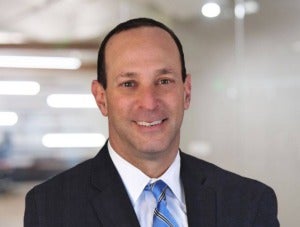Part 3 of the Employment Law Thought Leadership Series by Employ
By Jason A. Geller, Regional Managing Partner, Nathan K. Low, J.D., Partner, and Kevin L. Quan, Associate, Fisher & Phillips LLP
The information provided here does not, and is not intended to, constitute legal advice. All information, content, and materials provided here are for general informational purposes only.
Overtime calculation and pay can create significant wage and hour issues for every employer. Classifying eligible employees as exempt from overtime requirements is one of the most effective ways to avoid this wage and hour headache.
The “salary basis” test is just one of the important requirements that employers must satisfy in order for an employee to be properly classified as an exempt employee. Failure to comply with the “salary basis” test will leave employers vulnerable to potential lawsuits, including, but not limited to, claims for misclassification and failure to pay overtime.
Background
Under the federal Fair Labor Standards Act (FLSA), employers are required to pay their employees a minimum wage and overtime pay for hours worked in excess of 40 hours per week, unless the employee is exempt from these requirements.
One exemption under the FLSA is for employees who meet the salary basis test, which means they are paid a predetermined and fixed salary that is not subject to reduction based on variations in the quality or quantity of work performed.
The salary threshold for the exemption is currently $684 per week, or $35,568 per year. See 29 CFR §§ 541.100, 541.601(b)(1). Keep in mind, the salary threshold may vary depending on more onerous state and local laws.
The FLSA regulations also exempt workers known as highly compensated employees (HCEs). To qualify as a HCE, an employee must earn at least $107,432 annually and meet a relaxed version of the duties test (i.e., “[T]he employee customarily and regularly performs any one or more of the exempt duties or responsibilities of an executive, administrative[,] or professional employee”). See 29 CFR § 541.601(a)(1).
On February 22, 2023, the United States Supreme Court decided Helix Energy Solutions Group, Inc. v. Hewitt, a case that clarifies the definition of the “salary basis” test under the Fair Labor Standards Act (“FLSA”), particularly for highly compensated employees paid on a daily basis.
The Court held that a “daily rate worker” was not exempt from the FLSA’s overtime guarantees notwithstanding his purported status as a “highly compensated employee,” because the employee’s compensation did not satisfy the “salary basis test,” which required compensation at a predetermined amount per week (or less frequently) regardless of the number of hours the employee actually worked during the pay period.
History of Helix
The plaintiff in Helix worked as a tool-pusher on an offshore oil rig from 2014 to 2017. He was paid between $936 and $1,341 per day, no matter how many hours he worked in a given day. He received this day rate for every day he worked, which amounted to an annual salary in excess of $200,000.
The plaintiff filed a lawsuit in federal district court in Texas, alleging he was misclassified as exempt and was therefore entitled to overtime. The district court disagreed with the plaintiff, holding that because he received at least $936 in any week that he performed work for his employer — i.e., more than the $684 per week required to meet the minimum requirement for the salary basis test — he was properly classified as exempt.
The plaintiff appealed this ruling to the Fifth Circuit. The Fifth Circuit agreed with the plaintiff, reasoning that the salary basis test requires an employee to be paid the same amount of salary on a weekly basis or less frequently, irrespective of the days worked in the particular workweek.
Because the plaintiff’s pay varied by the number of days he worked in a workweek, the Fifth Circuit concluded it did not meet the regulatory definition of a “salary” for purposes of the white-collar exemptions under the FLSA. The employer appealed the Fifth Circuit’s ruling to the United States Supreme Court.
The United States Supreme Court’s Decision
The issue before the Supreme Court was whether the HCE exemption applied to employees who were paid on a daily basis.
The Court held that a worker who is not compensated on a salary basis cannot qualify for the FLSA’s white-collar exemptions, when the employee’s paycheck is based solely on a daily rate, meaning the employee receives a certain amount if the employee works one day in a week, twice as much for two days, three times as much for three, and so on.
In reaching its conclusion, the Supreme Court pointed to the text and structure of the FLSA’s regulations, and observed that nothing in the regulatory description of a salary applies to a daily rate worker, who by definition is paid for each day they work and no others. In short, according to the Court, a day rate is not the same as a salary for purposes of the FLSA.
The Court further advised that an employer could come into compliance with the salary basis requirement in two ways.
- First, it could add to the plaintiff’s per-day rate a weekly guarantee that satisfies certain regulatory conditions, which include that the guaranteed amount meets at least the minimum weekly required amount paid on a salary basis, regardless of the number of hours, days, or shifts worked and that a reasonable relationship exist between the guaranteed amount and the amount actually earned.
- Alternatively, the employer could convert the plaintiff’s compensation to a straight weekly salary for the time he spent on the rig.
What this means for employers
Although Hewitt was compensated well over $200,000 annually (thus meeting the minimum weekly requirement for the highly compensated employee exemption), he was not paid on a salary basis because a “true salary — a steady stream of pay” cannot vary much and is an amount that the employee may rely on “week after week.” Specifically, the fluctuation in Hewitt’s pay indicated that he was not truly compensated on a salary basis.
Going forward, employers should be careful paying on a day-rate basis those employees they claim to be exempt, and, if they do, work to ensure that the overall compensation arrangement is in compliance with the salary basis requirement as articulated by the Supreme Court in Helix.
Considerations and steps moving forward
The decision highlights the importance for employers to comply with the strict requirements under the FLSA to ensure employees are properly classified as exempt employees. There are four important steps for employers to consider:
The information provided here does not, and is not intended to, constitute legal advice. All information, content, and materials provided here are for general informational purposes only.
About the Authors

Jason A. Geller is the managing partner in the Fisher & Phillips LLP San Francisco office. Jason represents employers in all facets of employment law matters.
He has extensive experience defending employers in litigation involving claims under the Family and Medical Leave Act (FMLA), the California Family Rights Act (CFRA), the Age Discrimination in Employment Act (ADEA), the California Fair Employment and Housing Act (FEHA) and California wage and hour laws.
Jason has defended employers against class and individual wage and hour claims, including claims for alleged misclassification of exempt and independent contractor status, and failure to pay overtime and provide meal periods and rest breaks. He also frequently defends employers in whistleblowing and retaliation claims, including claims under the California Whistleblower Act, the False Claims Act and various provisions of the California Labor Code.
His clients are involved in a variety of industries, including insurance, assisted living, independent living facilities, construction, manufacturing, engineering, architecture, education, hospitality, professional services, agriculture, technology, retail and restaurant industries. Between 2015 and 2018, Jason was included in Northern California Super Lawyers.

Nathan K. Low, J.D., is a partner in the Fisher & Phillips LLP San Francisco office. He represents employers in all areas of labor and employment law. His practice focuses on defending employers in wage and hour class and collective actions, PAGA claims, single-plaintiff claims, and retaliation and wrongful termination claims.
Nathan has been recognized in The Best Lawyers in America, Ones to Watch (2021 – 2023) and Super Lawyers Rising Starts (2020 – 2022). He is a Member of the Orange County Asian American Bar Association (OCAABA).
While in law school, Nathan was a judicial extern for the Honorable David O. Carter of the United States District Court, Central District of California and the Honorable Gregory Keosian of the California Superior Court. Nathan was an officer and member of UCLA’s Moot Court Honors Program and competed throughout the country.
He was also an editor for the Los Angeles Public Interest Law Journal. He received his J.D. from the University of California, Los Angeles School of Law and a Bachelor of Arts, cum laude, from the University of California, Berkeley.

Kevin L. Quan is an associate in the Fisher & Phillips LLP San Francisco office, where he represents employers in all areas of employment litigation.
His practice focuses on defending employers in a wide range of issues including claims for discrimination, harassment, retaliation, wrongful termination, failure to provide reasonable accommodation, leave law violations, wage and hour class and collective actions, unfair competition, and tort and contract-based disputes.
In addition to his litigation practice, Kevin also counsels employers on a variety of workplace matters including risk assessment and litigation avoidance, policy development and compliance, employee handbooks, training and employment contracts.
During law school, Kevin served as a judicial extern for the Honorable Edward M. Chen of the United States District Court, Northern District of California and for the Honorable A. James Robertson II of the California Superior Court. He served as the Executive Managing Editor of the UC Hastings Constitutional Law Quarterly.




